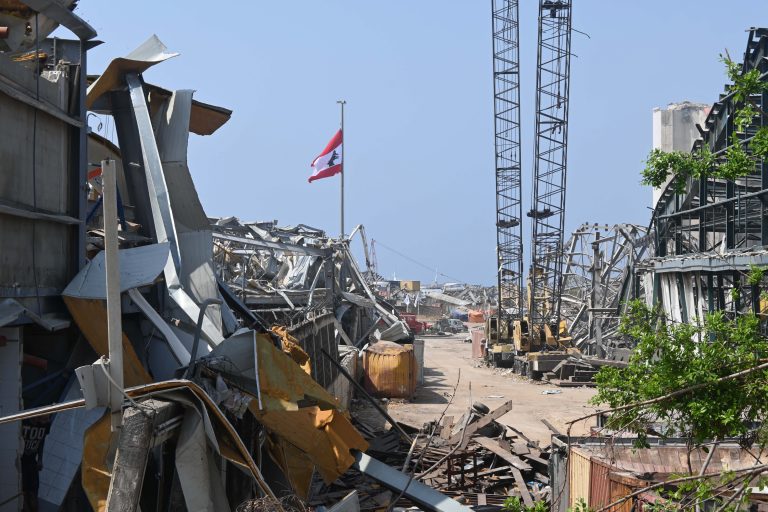LEBANON: ‘I feel like it’s not safe anymore’ – say survivors of Beirut blast five years on

Survivors of a blast that claimed more than 200 lives and injured 7,000 others have said how they are struggling five years after the explosion.
On 4th August 2020 a fire in a port warehouse in Beirut ignited a stockpile of badly stored ammonium nitrate.
Some 217 people died as a result of the blast, thousands were injured and around 300,000 people were displaced, many of whom still suffer physical and mental effects.
Catholic charity Aid to the Church in Need (ACN) spoke to Lebanese Christians who said their lives have changed since the blast.
Affifeh Bachir was 73 years old and away travelling when the explosion tore through the city. She returned to a shell of a home.
She said: “When I came back, I found the house collapsed. There was only a window, nothing else. It simply wasn’t there.
“I used to walk and feel safe. Now, I feel like it’s not safe anymore, not like it was before the explosion.”
Where her life had once been stable, she now struggles with basic needs.
“I used to buy anything I wanted. Now I must think twice before buying fruit. Everything is expensive, and I have a hard time getting my medication.”
Maroun El Khawand said it was “miraculous” that his family didn’t perish, having passed through the area that was devastated just an hour before.
Aged just 16 he had just arrived in the mountains of South Lebanon with his family, when he heard the sound of the blast.
He said: “The next day, we went down to see the situation. The whole neighbourhood in front of the port was destroyed, as if it had been razed. There were no windows, even walls had been torn down. It was devastating. Everything was gone.”
The 21-year-old added: “Fortunately, we weren’t hurt physically – it was a miracle, as we had passed through the area just one hour before. But psychologically, because of the explosion, a lot of people became traumatised by loud noises, such as thunder.”
“When I look back now, these five years went by in a blink of an eye. But if we fragmented each year, it would be a disaster – the coronavirus, the explosion, earthquakes, inflation, war.
“But Lebanese people are strong, they like to see the bright side of things. It makes us stronger.”
Maroun is going to study France but said he will return.
He added: “Sometimes you must leave, so that you can come back even stronger. I think I have a future in Lebanon, I never thought of leaving.”
Bishop Jules Boutros, from the Syriac-Catholic Church, said the day was the most “shocking moment” in recent memory.
He said: “At a personal level, it was the most difficult thing that I have experienced in the past five years. It was shocking, people couldn’t believe what had happened in just a single moment.”
He added: “I think our role is to be the light of our world, the light of our nations.”
ACN has supported projects including subsistence aid, education and religious formation.
